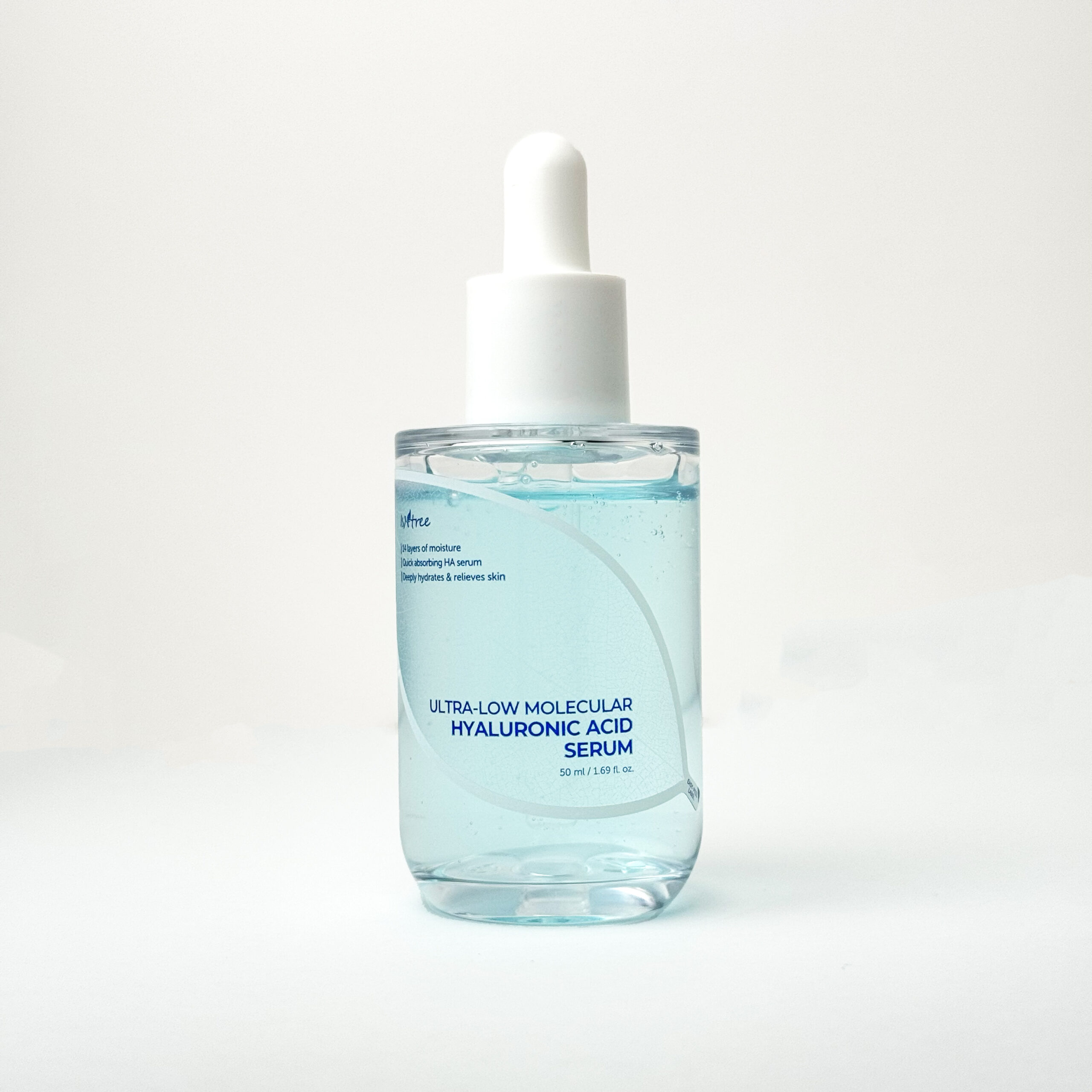Hyaluronic Acid (HA) is an ingredient used in many skincare products, including toners, lotions, essences, ampoules, moisturizers, and sunscreens. Hyaluronic Acid comes in several different forms which are categorised as high or low molecular weight. Low molecular weight Hyaluronic Acid absorbs faster and deeper than high molecular weight.
Hyaluronic acid is a naturally occurring substance found in our skin known for its unique capacity in retaining water. This makes it a superb humectant, which means it helps your skin maintain a healthy moisture level, contributing to that desirable, supple feel.
Who Should Use Hyaluronic Acid?
- Hyaluronic acid is great for all skin types. While oily skin may not need it as much as dry skin. During winter when skin gets drier, Hyaluronic Acid helps retain moisture.
- Mature skin benefits significantly from HA because natural HA levels decrease with age, leading to less moisture and firmness. Using HA in skincare products helps keep skin hydrated, reduces wrinkles, and smooths the skin.
Benefits of Hyaluronic Acid
Hyaluronic Acid is beneficial for several skin-related conditions:
- Early Signs of Aging and Fine Lines: As we age, our skin becomes drier. HA helps hydrate the skin, reducing the appearance of fine lines and wrinkles.
- Acne Scars: Its hydrating properties can aid in the healing and appearance of acne scars.
- Dry Skin: HA provides deep hydration, making it perfect for dry skin.
- Post-Treatment Healing: After treatments like chemical peels or laser therapy, HA promotes better healing by keeping the skin hydrated.
Pairing Hyaluronic Acid with Other Active Ingredients
To maximize the benefits of hyaluronic acid, consider pairing it with other active ingredients:
Hyaluronic Acid and Vitamin C
Combining hyaluronic acid (HA) with Vitamin C can smooth your skin’s texture, reduce dark spots, even out skin tone, reduce redness, and boost hydration.
Application Order:
- Apply the Vitamin C serum first then allow time for it to penetrate the skin.
- Apply product containing hyaluronic acid after the Vitamin C serum.
Hyaluronic Acid and Retinol
Using HA with retinol can reduce unwanted retinoid-induced side effects such as dryness, stinging, and skin irritation.
Application Order:
- Apply HA immediately after retinol if using it in serum form.
Hyaluronic Acid and Niacinamide
Niacinamide can help reduce inflammation and control oil production, while hyaluronic acid provides deep hydration.
Application Order:
- Use HA first to supply enough hydration to your skin.
- Follow with niacinamide to protect the outer layer of the skin and reduce moisture loss.
Hyaluronic Acid and Alpha Hydroxy Acids (AHAs)
Incorporating HA with AHAs can improve the tolerability of topical formulations and reinforce the skin barrier function. HA’s hydrating properties counteract the potential drying effects of AHAs.
Conclusion
Hyaluronic Acid is a common, effective ingredient used in a wide range of skincare products. Almost everyone can benefit from including Hyaluronic Acid in their skincare routine. Most skincare products contain Hyaluronic Acid, but if you are looking for a dedicated product with high concentrations and low molecular weight, we recommend the Isntree Hyaluronic Acid Serum.


0 Comments